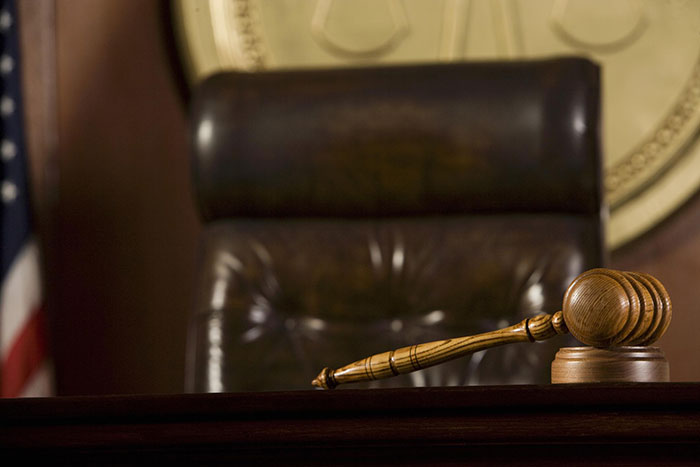
Why the Best Title IX Lawyers Are Needed for Campus Sex Assault Cases
We have experience in handling several Title IX allegations.
An example of some of the universities at which we defended Title IX allegations include:
(allowed to remain a student)
We have a proven track record of successfully fighting claims of sexual assault under either Title IX and/or as violations of the Code of Student Conduct.
Your son or daughter has been accused of sexual assault on campus. What do you do now?
Such a sexual misconduct allegation is no trivial matter. It will be taken very seriously at the college level. The college will investigate the claim, collect evidence, and expect answers from the accused, just like in a criminal police investigation. The accused can be expelled from college and have a permanent mark on his record if he loses.
Moreover, there is always the risk that a Title IX claim at the college level can turn into an actual criminal charge in criminal court. Such a charge can include prison time and sex offender registration.
You need experienced representation by a defense attorney who handles BOTH sexual assaults and Title IX cases.
It bears repeating—you need an attorney who knows how to handle sexual assaults specifically AND has experience in Title IX proceedings.
Fortunately, you have come to the right place.
We have experience handling not just sex crimes but also Title IX proceedings. And we have many times disproven allegations of sexual misconduct, which is becoming an epidemic in the “Me Too” era.
The stakes are too high to leave anything to chance.
The slightest mistake could jeopardize your loved one’s future, their reputation, and even their freedom.
Don’t wait. Call us for a free consultation.
If someone in your family has been accused of sexual assault on a campus and faces investigation under federal or state laws, you need the best Title IX lawyers you can find to protect your loved one’s legal rights. Here’s why…
Sexual assault complaints are extremely serious, especially in Texas. Criminal penalties can include prison time and high fines — and that’s just a start.
Title IX operates in the administrative arena via on-campus hearings, where defendants can be steamrolled by lacking the legal right to confront their accuser and even know the full extent of the accusations.
Don’t let dubious Title IX procedures limit your loved one’s legal rights to due process, the presumption of innocence and having their day in court. Contact our law firm today for a case review.
“Neal is the best attorney anyone could ever want. We started out in a situation we thought we would never be in with our child and a parent’s worst nightmare. Our son made a mistake while suffering from PTSD and at first we had a horrible attorney and things just didn’t feel right with her so we prayed for God to send us the right attorney. Neal was that perfect attorney we needed. His devotion to our son and his case was phenomenal. He was very professional and knew exactly how to handle his case to get the job done. He kept fighting for our son and we will forever be in his debt for that. If you need an attorney that will care about you and fight for you then Neal is who you want and he is worth every single penny! We pray blessings over him and thank God for him every single day. He has a true warriors heart for his clients and our son will be living free because of that precious smart warrior! Thank you Neal we can never repay you for everything you have done for our family.”
Client’s charges declined
Verified Customer
What is Title IX?
Title IX (pronounced “Title 9”) is a 37-word federal law which is part of the Education Amendments Act of 1972. Like many laws, it has acquired more meanings and functions with time.
Title IX states:
No person in the United States shall, on the basis of sex, be excluded from participation in, be denied the benefits of, or be subjected to discrimination under any education program or activity receiving Federal financial assistance.
Originally, Title IX was used to boost athletics opportunities for women at colleges and universities and in high schools where athletic participation was male-dominated. But in the late 1970s, Title IX complaints began being used to spur lawsuits over sexual harassment and discrimination of women by male teachers, in the case of Alexander v. Yale.
Sexual harassment, and later sexual assault, became seen under Title IX as a form of sexual discrimination in themselves. That continued in the 1990s with 3 U.S. Supreme Court decisions geared to protecting students against sexual assault and sexual harassment.
Since then, private lawsuits against educational institutions have followed. As a result, colleges and universities have been seen as overly aggressive in their enforcement of Title IX, especially as it pertains to sexual misconduct.
If a university or college which receives federal funds is aware of sexual misconduct in its programs or activities and ignores it, the institution may be held legally responsible in court. It may also have to pay damages to the victim, whether the crime was committed by a student, a faculty member or a member of the school’s staff.
Sexual misconduct under Title IX can include sexual harassment, rape, date-rape, sexual assault and other sexual violence.
Trump administration aims to loosen Title IX
The administration of President Donald Trump is trying to loosen the law by proposing Title IX revisions. Among other things, these proposals would make colleges liable for looking into such incidents only when they had “actual knowledge” of the sexual misconduct.
As for students, they would need to report the Title IX discrimination to a school official such as a designated and formal Title IX university coordinator with responsibilities in such matters.
The Trump administration has already rescinded guidelines from the administration of President Barack Obama pushing colleges and universities to investigate campus sexual assaults more aggressively.
Although women are sexually assaulted far more often than men, according to a University of Texas study, Trump’s proposals are geared to protect men as victims (of unfounded accusations) more than women as victims (of rape, sexual assault or sexual harassment).
New Texas laws go beyond Title IX
The Texas Legislature has taken a far different approach by moving beyond Title IX.
In May 2019, Texas lawmakers voted in favor of 3 bills, all of which were signed by Gov. Greg Abbott, requiring college officials to report sexual misconduct on campus or face criminal penalties.
That’s right: criminal penalties.
Even some survivor advocates have questioned that legislation.
Criminalizing school employees is not the kind of accountability we’re seeking when everything else in the system is set up to make it harder for survivors to report,” said Jess Davidson, executive director of End Rape on Campus at the University of Texas.
One bill passed into law was Texas Senate Bill 212. It holds that college and university employees who fail to report sexual misconduct to their school’s Title IX coordinators could be charged with a misdemeanor crime. Such employees could also be fired.
As for the educational institutions which fail to report sexual misconduct, they could be fined up to $2 million by the state’s higher education coordinating board under the new law.

It’s also possible that creating such criminal penalties would result in campus officials reporting any and every minor incident in order to protect themselves from personal liability. Further, Texas House Bill 449 requires that a college or university note on the transcript of any expelled student if the dismissal was due to a non-academic reason.
Finally, Texas House Bill 1735 requires educational institutions to adopt policies defining prohibited behavior, to indicate punishments for such behavior, and to explain the processes for reporting and responding to sexual harassment, sexual assault, stalking and dating violence.
Policies differ from campus to campus
As a result of these and other laws, policies for Title IX investigations can vary from campus to campus. This means varying interpretations of legal issues can arise, making each case even more complicated, and making it imperative that the accused get the best Title IX defense lawyers they can find.
Also, since the new Texas laws apply only to higher education institutions such as colleges and universities, and not to kindergarten through 12th grade, sexual harassment on a college campus might not be considered the same thing on a high school campus.
Title IX processes may block legal rights
Studies show that as many as 25 percent of college women have reported being sexually assaulted at least one time. Clearly, their rights must be protected.
But in this #MeToo age when claims of male sexual misconduct are rampant and sometimes unsubstantiated, it’s also important to protect the rights of those who are falsely accused of sex crimes. They need their legal rights protected as well, and processes stemming from Title IX or related laws may thwart that.
When a student is accused of Title IX sexual assault, the Title IX investigation is handled in-house by a school’s officials. That means the student may be denied many legal rights which they would otherwise have if the case was handled in court.
Student are often at the mercy of the college,” says veteran Houston criminal defense lawyer Neal Davis. “There’s a lack of due process, a part of their constitutional rights.
That’s because Title IX investigations and proceedings on campus occur beyond the criminal justice system, where accused persons are constitutionally entitled to equal protection under the law, the presumption of innocence and the legal due processes by which they can defend themselves. Texas lawmakers’ extensions to Title IX complaints threaten such protections, turning Title IX into discrimination against the accused.
Title IX sex crime defense lawyers are vital
With all these changes in laws pertaining to sexual misconduct on campus, Title IX discrimination lawyers are vital for the accused.
Not only may defendants face potentially severe punishments and criminal penalties for alleged sex crimes — penalties including prison sentences and steep fines — but students can lose their academic standing and their chance to attend a graduate school.
Convicted students may even have to register as a sex offender in Texas.
Neal Davis said in an interview that false claims of sex crimes have “almost become a hysteria — like the Red Scare (of the 1950s).
As a result, activist groups have arisen to help protect the rights of the accused. One such group is Save Our Sons, which chronicles efforts by those who are falsely accused to sue Title IX universities or colleges for denial of due process.
Get a Title IX criminal defense lawyer
Students who are accused of sexual assault, sexual harassment or other sexual misconduct, and who face Title IX procedures on their campus, are advised to consult an experienced and knowledgeable Title IX defense lawyer.
By all means, do NOT go into a Title IX hearing at your school without the best Title IX lawyer on your side.
If a member of your family in Houston, Harris County, Montgomery County or Fort Bend County faces a Title IX complaint, contact the Neal Davis Law Firm.
We will quickly provide you a confidential legal review of your case. Then, you and your family can decide how you wish to proceed.
simply walked away…
“Neal represented our son and the case against him was dismissed…Neal took time to understand our needs and truly appreciate our values and to convey to the Court…the case details and the circumstances of how our son was himself victimized…our son, who is an honor student, was completely exonerated.”
Houston | Sex Crime Defense: Case dismissed
difficult times
“Thank you for guiding us through difficult times. It has been a nightmare for us the last couple of weeks, we are relieved that it is over and Johnny can focus on his college applications. You have done a fantastic job!”
Rape charges declined against high school student (one of many cases where we have had charges declined in rape allegations)
Verified Customer
More resources:












